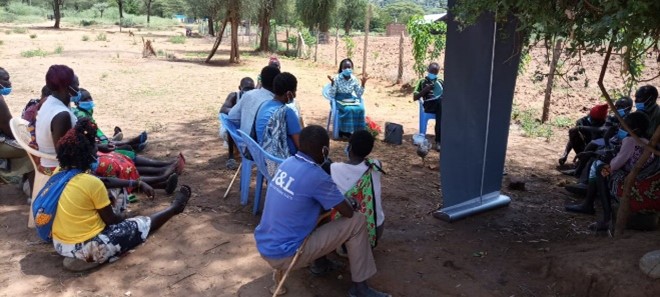
Life for farmers in Kenya has never been easy. They face an enormous amount of challenges every day that often cause them economic problems. One of the most significant issues for smallholder farmers is that they occupy an unequal and passive status in their market, as they often have to deal with large-scale farmers. Who, in most cases, dominate the market and have the power to determine the prices of goods, which are prohibitive for smaller farmers.
For this reason, they needed an alternative approach to increase their bargaining power, so they came up with Farmers’ Self-Help Groups, an inclusive approach used as a market outlet in rural areas of Kenya. Farmers have organized themselves into small producer/aggregator groups to bring their products together and sell in the target market. The aim is to increase farmers’ bargaining power while improving income-earning capability and agricultural productivity.

To help reach this goal, E4Impact, together with Northern Rangelands Trust, CEFA Onlus, Amref Health Africa, and SOMIRENEC, is carrying out the project Ustahimilivu – Support to Resilience for Sustainable Livelihoods funded by the European Union. Under this program, mango and beekeeping smallholder farmers have been regrouped into 76 Self-Help Groups, trained on elements of group dynamics, and coached on developing group management structures that will guide the effective operation of the groups.
The project plays a fundamental role in developing these groups, and the Tulung’wo Self-Help Group testifies to it. It is located in the Lomut unit of the Masol Conservancy in West Pokot County, Kenya, and it is one of the visionary groups. It counts 18 mango producing and aggregating farmers whose mission is to produce and supply up to 5,000 crates/nets of Quality Mango Produce by 2025. Their goal is to improve the common interest and the socio-economic affinity for its members. Therefore, thanks to this program, they’re succeeding in achieving all their goals.

This activity on the Self-Help Groups is a part of a much broader objective: contributing towards increased resilience of pastoral communities to drought and other effects of climate change in arid and semi-arid lands (ASAL) in the West Pokot County (Kenya).
Kenneth Changkwony
